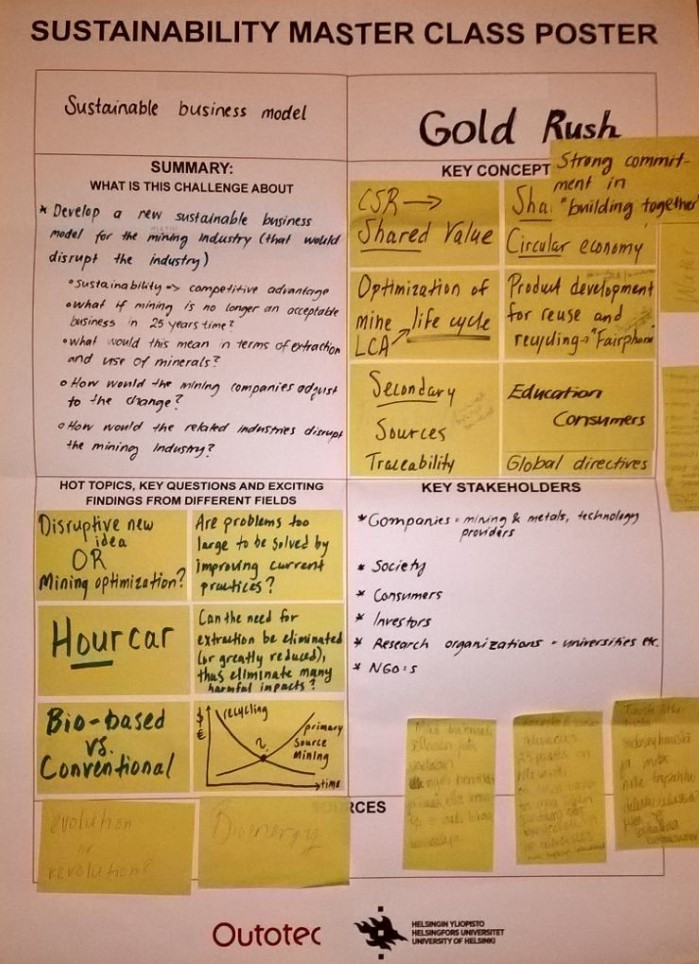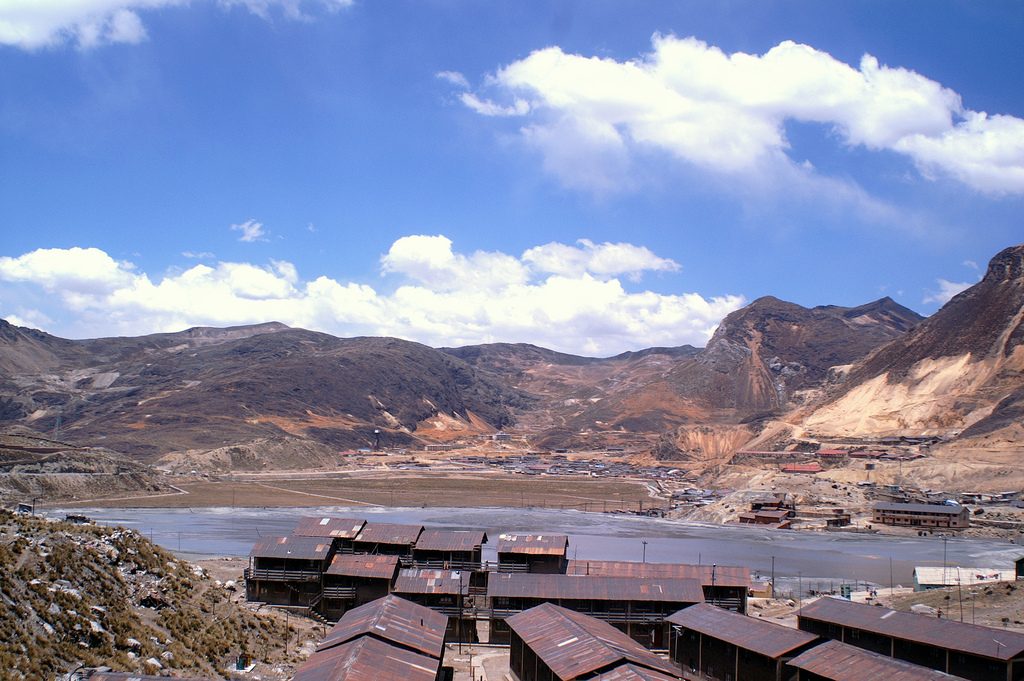Have you ever thought about changing the world? Being the brave one who makes the difference, contributing with your grain of sand? Most probably yes, and thereafter noticed this coin has two sides. The first one is that you believe the solution is so simple: just educate, organize, have more respect, be more fair, no more corruption, BE SUSTAINABLE… And when you start to look for the best way of doing it, the implementation, then you notice that there are 7.400 millions of humans on Earth and you need to tell everyone your idea and try to explain why we should follow the change. That is the second side of the coin.
A couple of weeks ago, we decided to start making the change with the support of the University of Helsinki and Outotec. We are a group of enthusiast young students, researchers and workers (and most probably all at the same time) with very different backgrounds, working together to take the challenge of making mining sustainable.
We aim at solving a problem that affects everyone either directly or indirectly even if mining may seem distant from our everyday lives. How would developing a disruptive business model for mining increase sustainability? As you probably know, mining can have a huge impact on the environment, societies, and economy. History has demonstrated the destructive power of minor errors if the processes are not adequately controlled. Most mining projects are located in small towns where local people do not see all the benefits of mining, and may rather regard it as an invasion. We decided to set our targets high and solve this problem, and we will do our best to succeed and bring benefits for everyone. The figure below describes the starting point of our journey.

During the first weeks of research we have found several interesting facts and recent developments related to the mining industry, recycling, energy consumption, and use of resources. Bullet points summarize the main points.
- A huge amount of literature has been published concerning moving the industry towards sustainability.
- The biggest problems of mining are water related.
- Huge social problems between local people and the mining industry.
- According Porter & Kramer, capitalism should be reinvented to put focus on creation of shared value.
- Circular economy including extended lifetimes, reuse, remanufacturing, and recycling seems vital together with increased efficiency, decreased consumption, and replacement of metals with bio-materials
- 100% recycling rate of materials is not possible, hence mining industry may always be needed at some level.
- We found that material consumption is related to lifestyle choices: the more you consume the bigger amount materials is needed.
- One of the most important discoveries was when we tried to respond to the question: who are the key stakeholders? And we can summarize our response today as, everyone and everything.
Developing a sustainable business model for mining is not an easy task, especially because we are talking about a sector that is non-renewable by nature. Unsustainability is inherent, but after reading, researching, discussing, and presenting the different points of view, we believe that it is possible to carry out the business of mining. Only revolutionary transition shall take place first.
One day you say “I need to challenge myself” and you have a missions of “doing something great,” so what is our advice? DO IT! The world will thank you.
Sincerely,
Gold Rush: Elina Salo, Germán Fernandez, Jack Räisänen, Noora Oikarinen, Panu Maula and Suvi Suojanen

